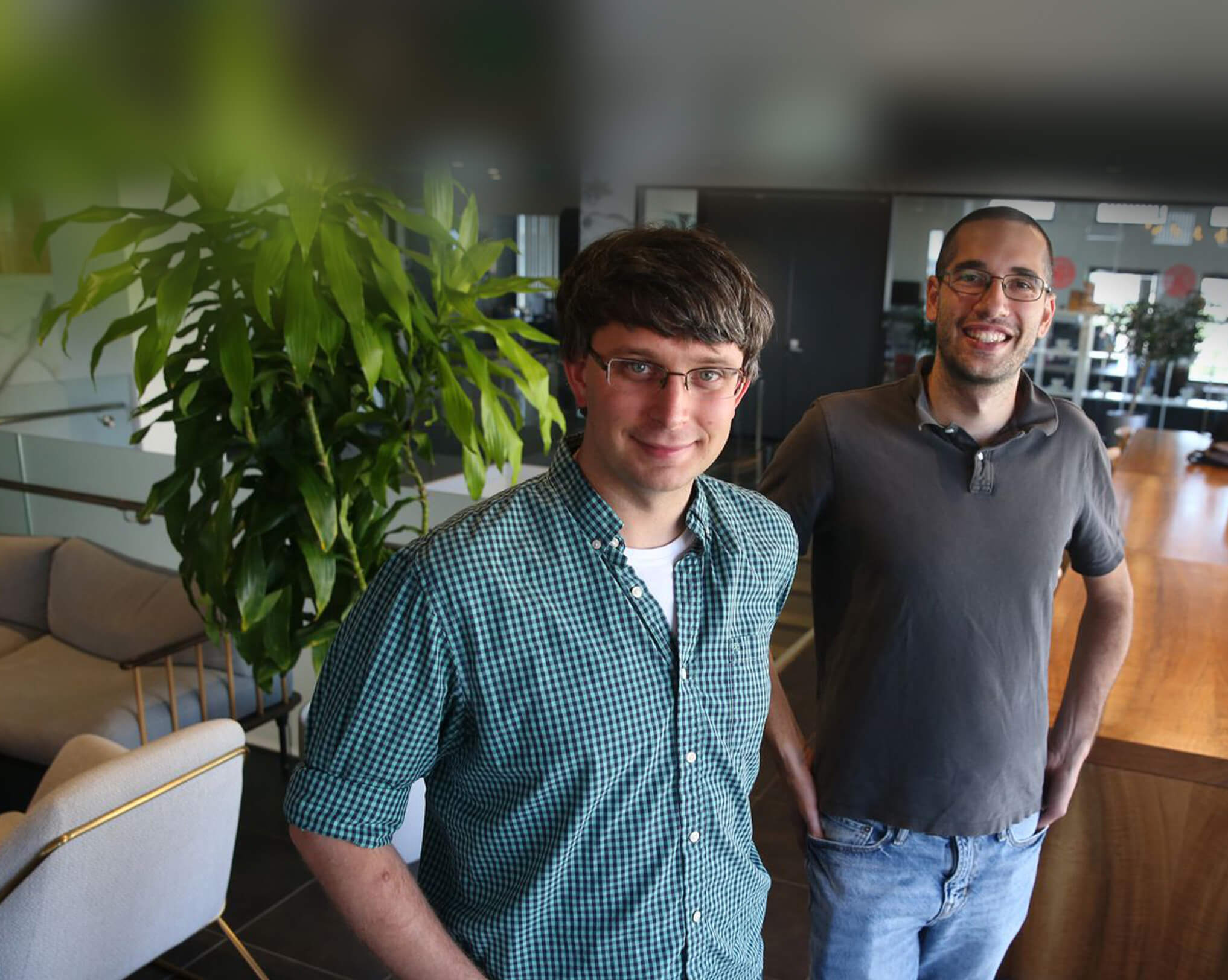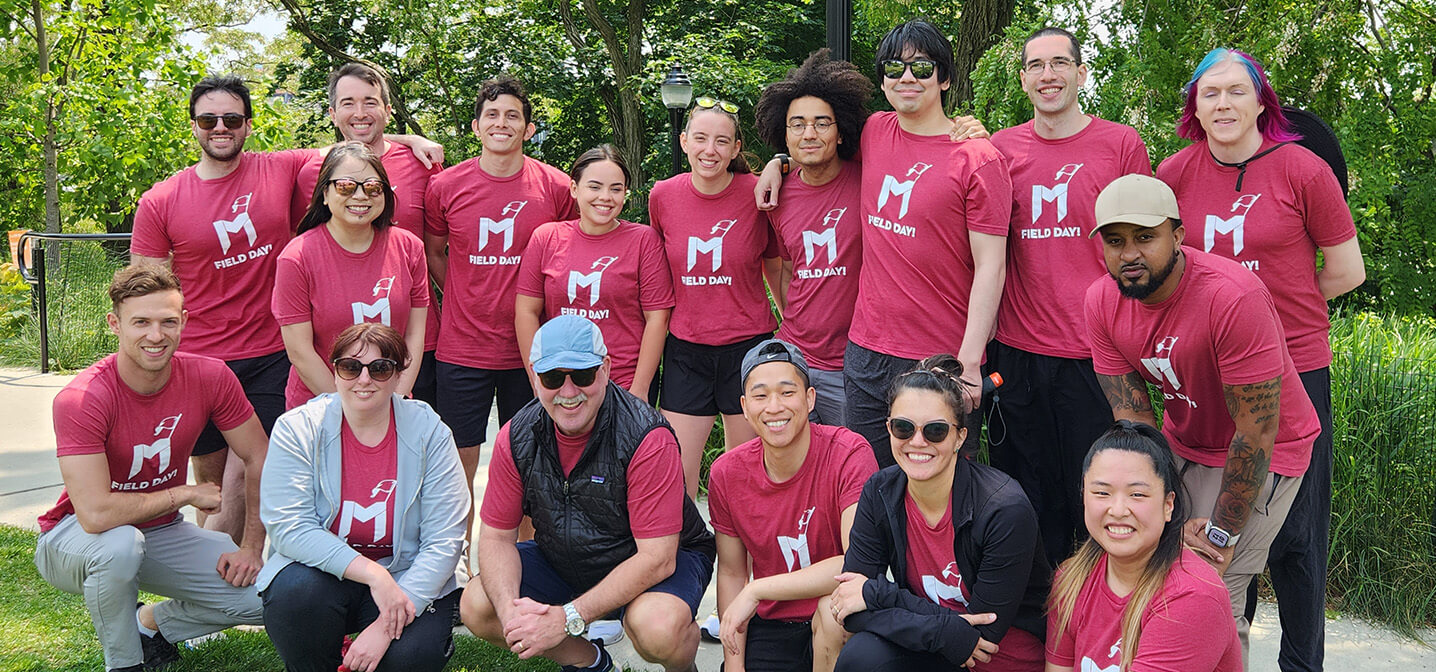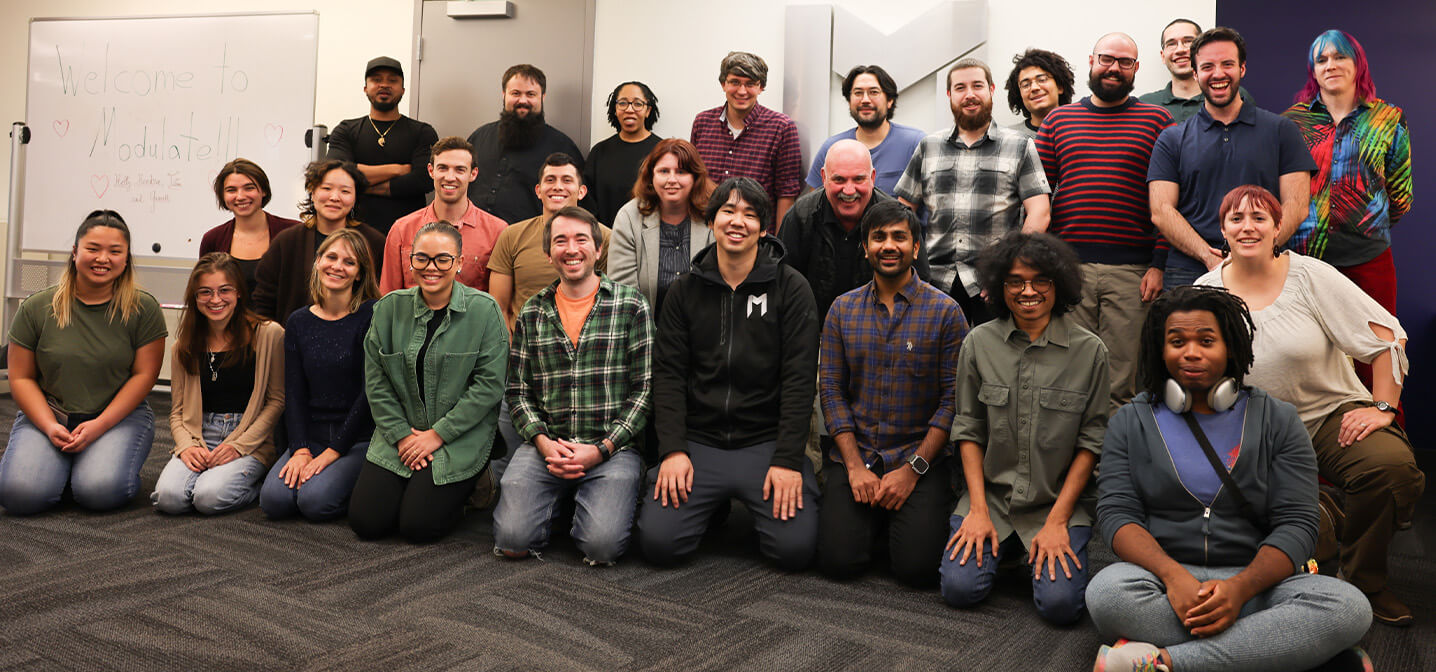
Modulate is a Boston-based startup using cutting-edge machine learning and audio tech to make voice chat safe. ToxMod understands not just what is being said, but also whether it causes harm, helping you catch magnitudes more toxicity than player reporting and speech-to-text solutions.
Learn MoreThe Modulate Story
Mike Pappas and Carter Huffman found each other while working on a physics problem in the halls of an MIT undergraduate building. They’ve been comrades, friends, and business partners ever since– so the story goes. After respective stints at Bridgewater, NASA’s jet propulsion laboratory, and plenty of accrued research in the field of AI voice modulation, the two utilized their backgrounds in machine learning to address a rampant issue in the gaming space community: vocal harassment, sexism, grooming, and misconduct.
So, ToxMod was born. Rather than further developing voice changing technology, the product focuses on voice moderation. It helps online gaming platforms identify and flag harassment, hate speech, and misconduct on their platform, and helps the companies take appropriate action against the danger. Modulate is the only provider on the market with the capacity to watch an entire gaming ecosystem, without having to wait for a user to file a report.
After raising their Series A in the past year, Modulate’s team has doubled, keeping a sharp focus on the ethical use and distribution of AI. The team has partnered with Nintendo, The Fair Play Alliance, the Family Online Safety Institute, and won Time’s 100 Most Influential Companies of 2022. Pappas and Huffman seek to make the space of online gaming safer and more inclusive, with the utmost credence that ToxMod be used in a manner that shapes the future of the online gaming community for the better.
“You need to be comfortable saying, ‘I have a vision of how I'm going to succeed. I might be wrong and there might be other ways to do it, but this is my battle plan and these are the allies I need.”

Q&A
What are some remarkable experiences you’ve had with Hyperplane?
There was a time, early on, that we had never engaged with a series A investor before. For the very first time, we were having to engage with real, technical questions, specifically when we were starting to talk about compensation. We wanted to do full salary transparency, which is very atypical. A lot of our investors told us that it was a bad idea.
But the thing that Hyperplane did very, very consistently was sit down and say, "Look, I've got this perspective as an investor and I have these needs as an investor. Have you thought about this? Have you thought about that?" Not against their own interest, but kind of divorced from their own interest. They hear us and they will back us a hundred percent of the way every time. They'll share their perspective, but when we make a call, they are on our team every time. And that's really I think a really valuable thing.
How has having a Boston-based VC helped you as a company?
Boston is interconnected. As we were meeting Hyperplane, we met a couple other folks who are also affiliated with Hyperplane, and I think that they all knew each other. In that sense, getting Hyperplane onto the team bought us more confidence from local Boston folks who knew Hyperplane well. The value we've gotten from them, though, is not really about the geography stuff. It's really about them being willing to engage with us as people.
And so I think something that Hyperplane gets really well is not just the age old “you got to spend money to make money,” principle, but they can be comfortable with the idea that we're all just hoping things are going to work out, though no one can make you any promises. They have the comfort to be able to engage in that kind of a business.
Do you have any general advice for fellow founders?
Mike: One thing that we've learned is you need to have a really clear vision in your head and you need to be comfortable. Sometimes a customer is just not worth your time even if you could close them. You need to be comfortable walking away from investors in the same way. You need to be comfortable saying, "I have a vision of how I'm going to succeed. I might be wrong and there might be other ways to succeed, but this is my battle plan and so these are the allies I need." That's going to land you in a much better spot, being able to be bottoms-up instead of trying to collect a bunch of strategic tidbits from other people that don't have the context you do, even if they're willing to act with the confidence as if they did.
Carter: Our company makes powerful tech. It's a potentially dangerous tech. If you hire people with a lot of drive that align with your company, they will come in and they will want to do their own thing within your company. And for me at least, that was really scary. So we have to take comfort in that we hire really well and then trust those people. If you're a good strong company working on good technology that people really actually align themselves with, people will go off and do random things that make your company better, not tear it apart.







